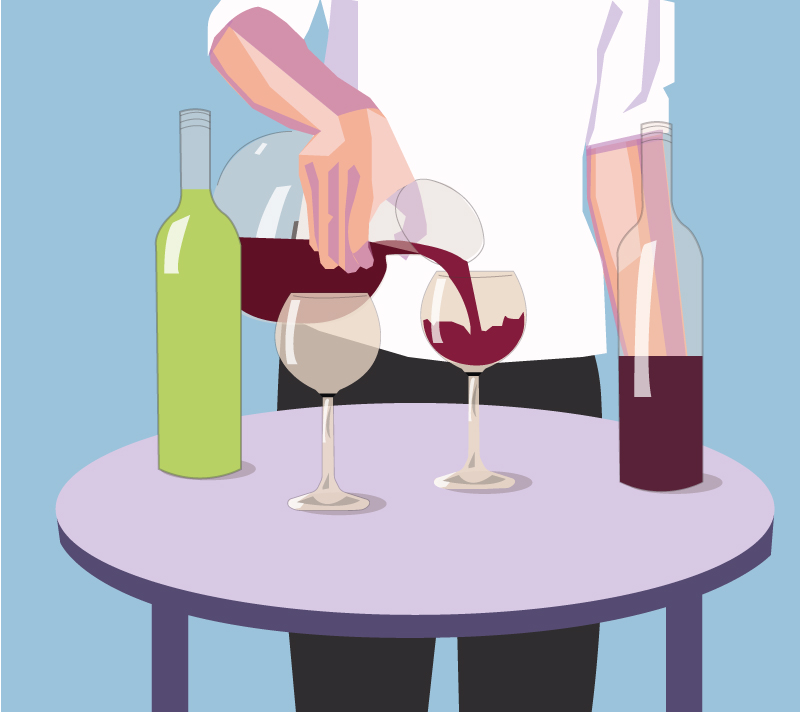
For centuries decanting was a trivial operation, the wine was taken from amphoras and barrels to small deposits and served at the table. Today, it’s a subject of controversy.
Although it is rare to find a bottled cloudy wine, the main reason for decanting is the presence of sedimentation at the bottom of the bottle. After bottling and with the aging time a deposit is formed, and if not decanted, the wine can become cloudy, bitter, astringent and even unpleasant.
WINES THAT CAN BE DECANTED
– Full-bodied, long-guard reds.
– Wines with deposit at the bottom of the bottle.
– Wines with small concentrations of aromas (rotten egg, boiled egg, cooking gas or garlic) will improve with a prior decanting.
– Red wines, rich in colour, full-bodied and with a closed aroma – the aromatic molecules are released with oxygen.
– Full-bodied white wines, fermented in barrels and with malolactic fermentation.
– Unfiltered wines.
– Late harvest, Port wine, Moscatel de Setúbal and Moscatel do Douro, Carcavelos, Madeira, can be decanted between one and two hours.
WINES THAT SHOULD NOT BE DECANTED
– Reds and whites with little colour can oxidize faster and lose their fresh and fruit aromas.
– Wines that do not present a deposit or reduced aromas.
– Very old wines that require special care. Although there may be deposit at the bottom of the bottle, and with closed aromas, decanting may “kill” and cause the wine to lose its aromatic qualities. (In this case, the ideal is to decant just to eliminate the sediments and serve immediately afterwards).
– Filtered Wines.
– Light and delicate white wines should stay away from the decanter.
– Young, vigorous red wines, without barrels, are produced to be consumed early.
– Champagne and sparkling wines, no way.
Basically, there are two reasons to decant a wine. One is the need to “clean”, to separate the liquid from the sediments that appear over the years in the bottle.
The second reason is through oxygenation “soften” the wine. To make the aromas more vibrant, the tannins smoother, the alcohol less accentuated, which ends up harmonizing the more complex flavors and aromas.
We should always taste the wine, and if the perception of aromas is more difficult, this wine will gain from decanting and may stay longer in the decanter.
And as the wine comes from the vine (Vinha), cheers and a good glass.

